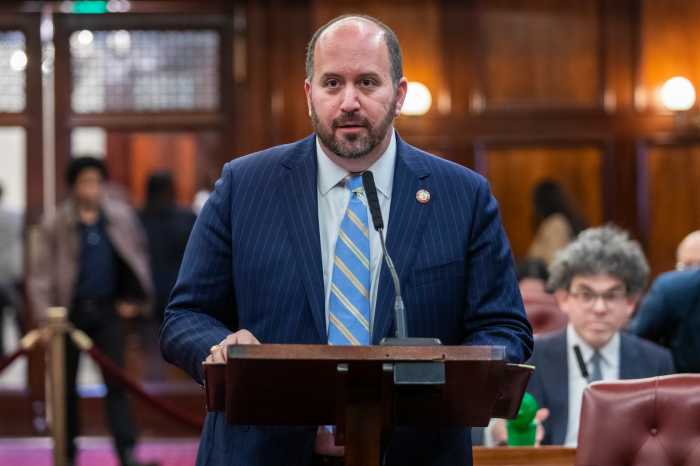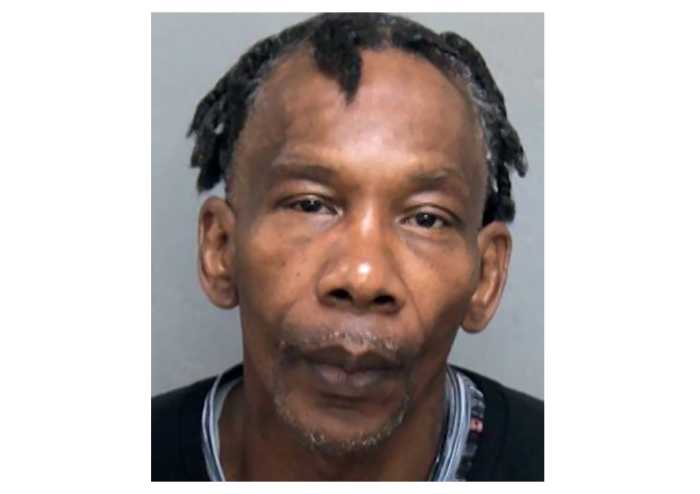Just a day before the April 1 deadline, Albany passed a $168.3 billion Fiscal Year 2019 state budget that included increased investments in education, public housing and transportation solutions.

On Friday, Governor Andrew M. Cuomo announced the highlights of the spending plan that he said included the highest ever investment in K-12 education, enacting a nation-leading women’s agenda, advancing 21st century transportation solutions, protecting taxpayers against federal tax changes, strengthening the middle class, and making strategic investments in New York’s future to drive growth and create opportunity for all.
This is a $15.2 billion difference from FY 2018, or a 9.9% increase from last year.
“This budget is a bold blueprint for progressive action that builds on seven years of success and helps New York continue to lead amid a concerted and sustained assault from Washington on our values and principles,” said Cuomo.
This year’s budget highlights are as follows:
Congestion Pricing Plan: The budget will enact the controversial Congestion Pricing Plan, that will create a $2.75 surcharge on for-hire vehicles south of 96th Street in Manhattan to help ease congestion and establish long-term funding stream for New York City public transportation. The costs will range from $2.75 for for-hire vehicles, to $2.50 for yellow cabs, and $0.75 for pooled trips.
Funding the Subway Action Plan: Cuomo has pledged to fully fund the Subway Action Plan, that will provide that New York City will fund half of $836 million plan in order to make immediate repairs to improve subway performance and maintenance.
Brooklyn-specific investments in the budget include:
The budget includes design/build legislation for the construction of new jails to replace the Rikers Island Jail Complex, the reconstruction of the Brooklyn Queens Expressway and New York City Housing Authority (NYCHA) projects. As a result of design/build authorization, the City will avoid significant delays in construction and will realize savings in excess of $1 billion.
School Aid: Education Aid will increase by about $1 billion (3.9 percent), to a record total of $26.7 billion for the 2018-19 school year and a 36 percent increase since 2012. Additionally, this includes investing $25 million to expand pre-kindergarten and after school programs.
Public Housing improvements: New York City will receive a new $250 million investment to NYCHA to deliver quality living conditions to tenants and implements new oversight measures by statute and executive order.
Combating Sexual Harassment: The Budget includes nation-leading, multi-pronged legislation to combat sexual harassment in the workplace including:
- Requiring all state contractors to submit an affirmation that they have a sexual harassment policy and that they have trained all of their employees.
- Prohibiting employers from using a mandatory arbitration provision in an employment contract in relation to sexual harassment.
Expanding Bus Camera Program: The budget includes expanding the current New York City Bus Camera program, by increasing the time of day the camera program may operate and directing installation of at least 50 new traffic monitoring cameras to enforce bus lane violations that impede mass transit service and create congestion.
Defending the Rights of Immigrants: The FY 2019 Budget continues the first-in-the-nation Liberty Defense Project. Last year, the State launched the Liberty Defense Project, a State-led, public-private legal defense fund to ensure that all immigrants, regardless of status, have access to high quality legal counsel. In partnership with leading nonprofit legal service providers, the project has significantly expanded the availability of immigration attorneys statewide. The recently passed budget includes an investment to ensure the Liberty Defense Project continues to sustain and grow the network of legal service providers providing these critical service in defense of our immigrant communities.

State Senator Brian Kavanagh (D-Northern Brooklyn, Lower Manhattan) applauded the state budget, in particular highlighting the need for major repairs on the BQE.
“We must do everything we can to ensure that while we’re rebuilding the BQE, we aren’t destroying our neighborhoods in the process. By authorizing design-build, we took a huge step forward to do just that. Design-build ensures trucks are kept off local roads and stay on highways, where they belong. It saves taxpayers at least $100 million. And it helps ease headaches for drivers across the region,” said Kavanagh.
Assemblyman Robert Carroll (D-Park Slope, Kensington, Windsor Terrace) a strong proponent of the Congestion Pricing Plan, applauded the state’s push for MTA funding.

“This new taxi surcharge will generate over $400 million annually and be dedicated to the MTA capital plan. Though $400 million may seem like a large sum of money this is in fact only a small step toward funding the MTA’s capital needs nor does this taxi surcharge reduce congestion or limit carbon emissions. As long as the subway system remains in crisis, I will continue to fight for a plan like the one proposed by the Fix NYC Advisory panel, which would establish the necessary revenue stream while reducing congestion and limiting carbon emissions for our city,” said Carroll.
Assemblywoman Jaime Williams (D-Canarsie, Georgetown, Mill Basin, Marine Park, Gerritsen Beach) applauded the budget’s passage, noting the funding toward improving quality of life issues for New Yorkers.

“Because of a sizable budget deficit, we had to make some tough decisions. But we fought hard for a spending plan that stays true to our New York values. This budget gives all New Yorkers a voice. From the public school student who deserves every chance to reach for the stars, to the tenant whose quality of life has been sacrificed for far too long, to the hardworking parents struggling to put their kid through college and the family torn apart by the opioid crisis, we’re here for you. It’s our responsibility to look out for you and to build a better New York. This blueprint moves us forward,” said Williams.






